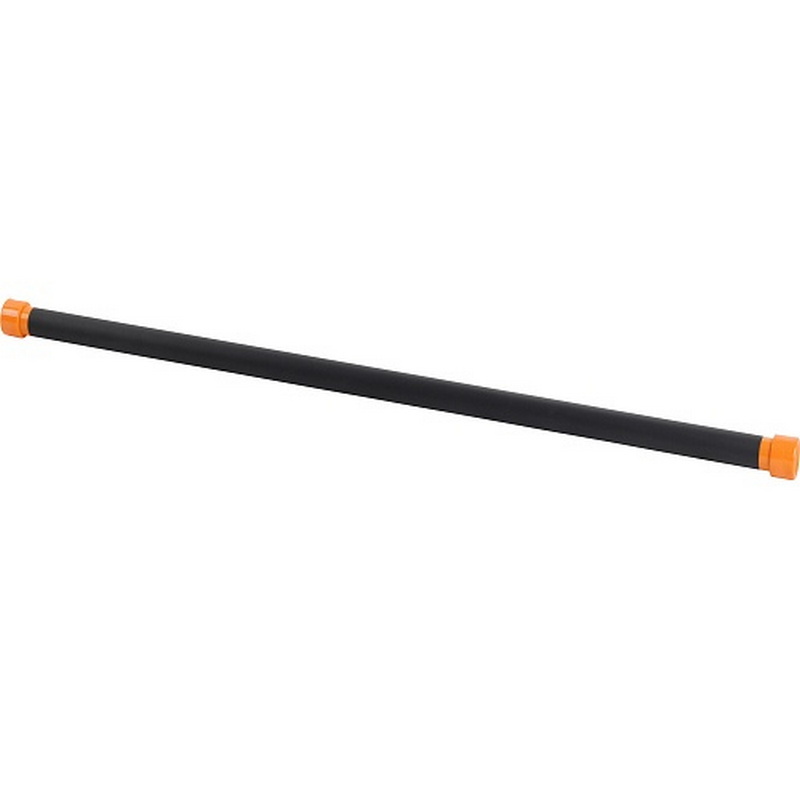The problem of plumbing conservation arises among the owners of country houses in cases where the house is equipped with systems water supply, heat supply, sewerage, and the owner will have to take a long break in living in this the room. Such a break can happen both in summer and in winter. Measures in these cases are taken different. And the purpose of plumbing conservation is to prevent unpleasant odors and keep them safe from defrosting.
Read in the article
- 1 Plumbing equipment
- 2 Seasonal conservation
- 3 How to get rid of the smell in pipes
- 4 Use of special tools
- 5 Conclusion
Plumbing equipment
Plumbing systems and equipment in a residential building include water supply, sewerage, and heating. This means that on this list - pipes, cranes, shells, water heaters, bath, shower. And all this economy needs to be operated according to the rules and serviced on time.
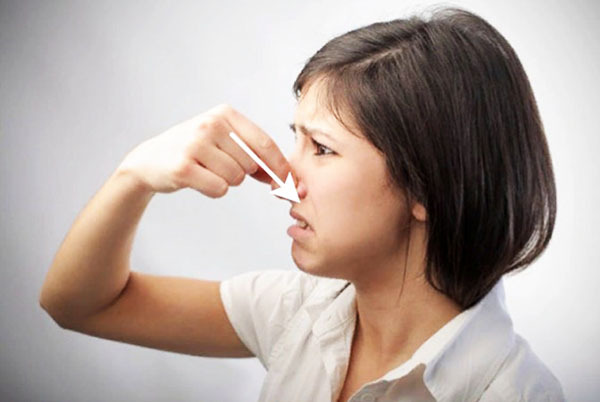
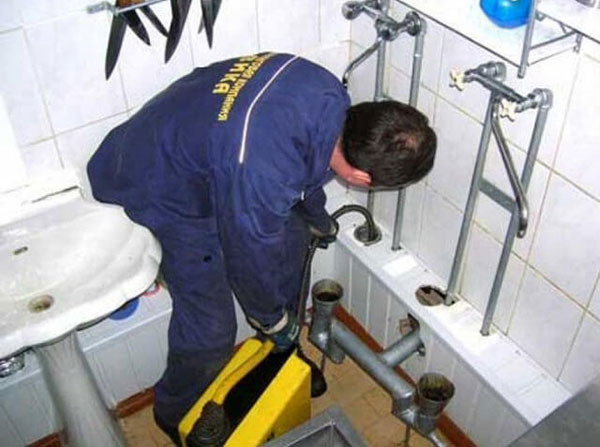
Seasonal conservation
Long breaks in the house during the warm season do not require serious preventive measures. Before leaving, you should check all the taps, turn off and de-energize the pumps, close the main valve on the water supply to the site. The heating system in the house does not work in the summer, the water in it was drained in the spring. It is also recommended to unplug the refrigerator and leave its door open. Otherwise, a musty smell will appear in it.
Preservation of systems and equipment for the winter requires more attention and more labor. The point is that the systems are charged with water. And water, according to the laws of physics, freezes in winter and, when turning into ice, increases in volume. Since the frost in an empty unheated house is the same as outside, the water remaining in the pipes will freeze. When expanding, ice breaks pipes and any plumbing fixtures - taps, fittings, seals, etc. In the spring, returning to the dacha, the owner discovers completely inoperative engineering systems.
There are several known ways to avoid this disaster.
The most reliable way is to drain water from wherever it is. These are all kinds of reservoirs - a cistern in the toilet, the toilet itself, water heaters, pumps, valve bodies. It is good if the system is designed and installed in such a way that the gravity of water is provided in it. Then, when the taps are open, the water will drain to the lowest point. But in some stagnant zones, water will remain, and even this small amount is enough to damage the reinforcement. To completely dry the water system, it is advisable to blow it with air and dry it. Equipment that is outside the house - pumps and storage tanks - it would be good to place in a special small house and cover it with heat-insulating material. And in the house itself, keep a small electric lamp on all winter, its heat is quite enough to protect it from freezing.
It is necessary to follow the mandatory shutdown of the water supply to the house. Then the main drain opens and some other taps. Air will flow into the pipes, which will speed up the drainage of water. In the toilet, you need to make sure that the cistern is empty and absolutely no water flows into it. Ball valves should be opened halfway. For insurance purposes, it is recommended to pour biologically active automotive orange antifreeze into the toilet and the cistern. It is harmless to the antibacterial wastewater treatment system.
It is difficult to empty water heaters by gravity. If severe winters are expected, then these units must be drained.
The most problematic place in plumbing systems is siphons. In areas with the possibility of severe cold weather, antifreeze should be poured into each siphon at least a quarter of a cup. And add a little liquid oil there, it will prevent the evaporation of water from the water seal. In warm areas with mild winters, you can skip this.
How to get rid of the smell in pipes
Bad odors usually occur in sewer systems. The joints of the parts can lose their sealing, and from there odors will go into the room. This means that all connections in the system need to be checked and - if necessary - put in order.
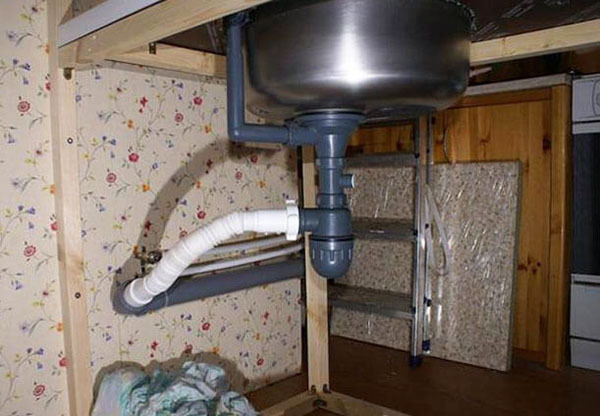
If this measure does not save you the trouble, then you should check the water seal. If it makes sounds in the form of gurgling or rustling, then this means that it is empty. We need to put it in order.
Odors can be caused by a plug in the drain pipe. The pipe will have to be cleaned.
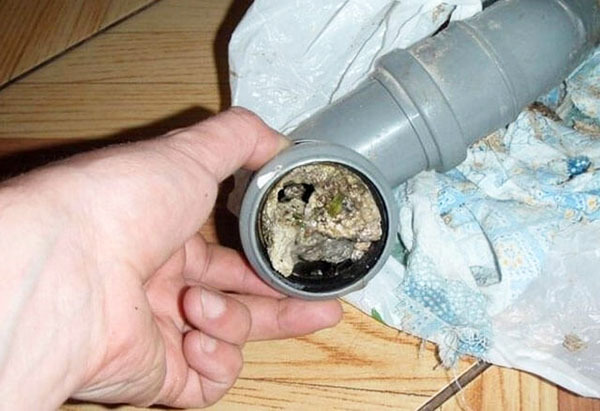
Sometimes the cause of odors is a bad siphon or an unsuccessful corrugated pipe. It is best to buy a new part and discard the old one.
Use of special tools
The source of odors can be a sink drain. Especially in the kitchen, residues of fat and food accumulate there. It must be cleaned without fail. There are special liquids for this: Domestos, Mole, Unicum, Chistin and others.
You can pour a couple of tablespoons of table salt into the drain hole for half an hour. Then - rinse everything with water. Helps in combating boiling water soda odors. For one liter of boiling water, add two tablespoons of soda - and pour this solution into the sink. To combat the smell from the bath, a solution of bleach is effectively used. Such procedures can be done for prophylaxis every week. And as an ambulance, it is recommended to use air fresheners.
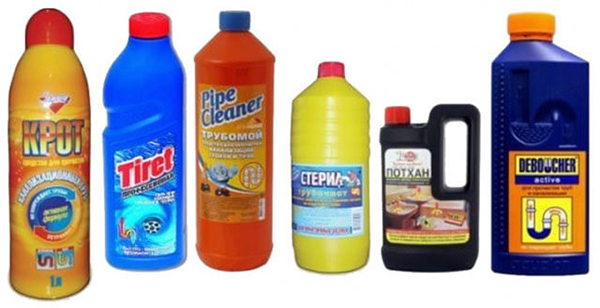
Conclusion
Plumbing maintenance is troublesome and not always pleasant. But it’s even less pleasant when it doesn’t work. Moreover, it emits bad smells. Here you really need to overcome disgust, mobilize your technical knowledge and fix everything.

